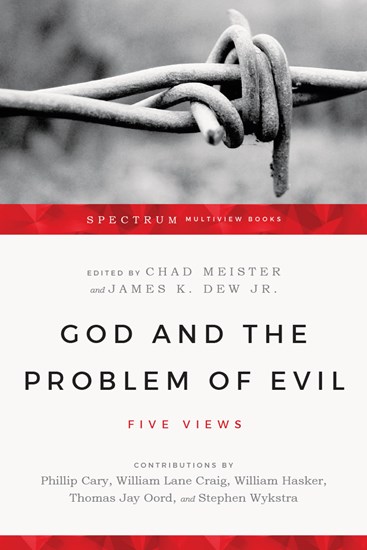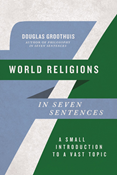
|
God and the Problem of Evil
ebook
|
- Length: 199 pages
- Dimensions: 0 × 0 in
- Published: May 16, 2017
- Imprint: IVP Academic
- Item Code: 9174
- ISBN: 9780830891740
-
Other Retailers:
Amazon*
*affiliate partner
-
paperback
Evil abounds. And so do the attempts to understand God in the face of such evil.
The problem of evil is a constant challenge to faith in God. How can we believe in a loving and powerful God given the existence of so much suffering in the world? Philosophers and theologians have addressed this problem countless times over the centuries. New explanations have been proposed in recent decades drawing on resources in Scripture, theology, philosophy, and science.
This Spectrum Multiview volume stages a dialogue between the five key positions in the current debate:
- Phillip Cary: A Classic View
- William Lane Craig: A Molinist View
- William Hasker: An Open Theist View
- Thomas Jay Oord: An Essential Kenosis View
- Stephen Wykstra: A Skeptical Theism View
According to the classic position, associated especially with the Augustinian tradition, God permits evil and suffering as part of the grand narrative of divine providence to bring about the redemption of creation. Molinism modifies the classic view by adding God's middle knowledge to the picture, in which God has knowledge of what creatures would do in all possible worlds. Open theism rejects the determinism of the classic view in favor of an account of God as a risk-taker who does not know for sure what the future holds. Essential kenosis goes further in providing a comprehensive theodicy by arguing that God cannot control creatures and thus cannot unilaterally prevent evil. Skeptical theism rejects the attempt to provide a theodicy and instead argues that, if God exists, we should not expect to understand God's purposes.
Edited and with an introduction by Chad Meister and James K. Dew Jr., God and the Problem of Evil hosts a generous and informative conversation on one of the most pressing issues in the Christian life.
Spectrum Multiview Books offer a range of viewpoints on contested topics within Christianity, giving contributors the opportunity to present their position and also respond to others in this dynamic publishing format.
"It is always enlightening to listen to a conversation among scholars who care deeply about a topic, take strikingly different positions, and engage each other in considerate and substantive ways. That's just what God and the Problem of Evil provides: a stimulating conversation. Well-known proponents of five distinct approaches to the most vexing of philosophical and theological topics—Why is there suffering in God's world?—summarize their positions in clear, accessible ways. Then each shows just how his view compares to the others. The positions presented cover a broad spectrum, yet each addresses with urgency both the intellectual and personal challenges that evil presents. The book makes a valuable contribution to current considerations of the topic."
"How do we come to philosophical and theological grips with the vast amounts of evil in a world created by a perfectly good—indeed, maximally great—Being? God and the Problem of Evil helpfully lays out the various sides of the debate on this issue. Five philosophical theologians present the distinctive differences in their respective views, also noting the points on which they agree. The result is a volume that will serve as an excellent, up-to-date resource for those seeking to further explore this crucial—and perennial—question."
"God and the Problem of Evil will be a helpful volume for those new to the discussion of this problem and looking for a brief overview of the possible arguments and counter-arguments made by Christian philosophers and theologians."
"God and the Problem of Evil offers a lucid, emotionally sensitive, and diverse set of essays on the problem of evil. It would serve well for pastors, students, and small groups who are looking for a place to start their journey into this issue, or for people who are wishing to go a bit deeper in their reflection on God and evil."
CONTENTS
Introduction
Chad V. Meister and James K. Dew Jr.
Part I: Perspectives on the Problem of Evil
1. The Classic View
Phillip Cary
2. The Molinist View
William Lane Craig
3. The Open Theist View
William Hasker
4. The Essential Kenosis View
Thomas Jay Oord
5. The Skeptical Theist View: A Journey
Stephen Wykstra
Part II: Responses
6. Response to Other Contributors
Phillip Cary
7. Response to Other Contributors
William Lane Craig
8. Response to Other Contributors
William Hasker
9. Response to Other Contributors
Thomas Jay Oord
10. Response to Other Contributors
Stephen Wykstra
Author Index
Subject Index














